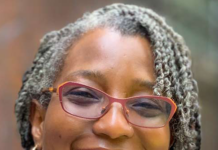 A new study led by researchers at Yale University finds increasingly persistent racial and ethnic disparities when it comes to how many hours individuals sleep per day.
A new study led by researchers at Yale University finds increasingly persistent racial and ethnic disparities when it comes to how many hours individuals sleep per day.
Using data collected by the National Health Interview Survey from 2004 to 2018, researchers found that the proportion of people who reported sleeping fewer than 7 hours per day increased significantly over the 15-year period, and it was significantly higher among Black people. The study found that Black people had the highest prevalence of both short sleep duration [fewer than 7 hours] and long sleep duration [more than 9 hours].
The Yale-led team reported that, in 2018, the percentage of people reporting short sleep duration was 11 points higher among Black people when compared with White people. The same disparity was 7.5 points in 2004. They investigated how these findings varied by sex and household income and found that the disparities were the highest for Black women and Black individuals with middle or high income.
The study found that the disparities were the highest for young and middle-aged Black adults, slightly narrowing among the elderly. “This suggests that factors related to working or employment conditions are disproportionally preventing Black individuals from having adequate sleep,” said lead author César Caraballo-Cordovez, postdoctoral associate in the Yale-based Center for Outcomes Research and Evaluation.
Harlan M. Krumholz, the Harold H. Hines Jr. Professor of Medicine at Yale and co-author of the study added that “both short sleep and long sleep duration are associated with higher risk of suffering adverse medical events, including higher risk of death. Thus, the persistent sleep disparities for Black people may be contributing to the persistent average worse health status among Black people. There should be renewed efforts to eliminate the socioeconomic and health conditions that prevent minoritized racial and ethnic individuals from achieving adequate sleep — including racism.”
The full study, “Evaluation of Temporal Trends in Racial and Ethnic Disparities in Sleep Duration Among US Adults, 2004-2018,” was published on the JAMA Open Network. It may be accessed here.













Black people tend to work the graveyard shift more relative to non-blacks and I’m sure this has a pejorative effect on their sleep quality.